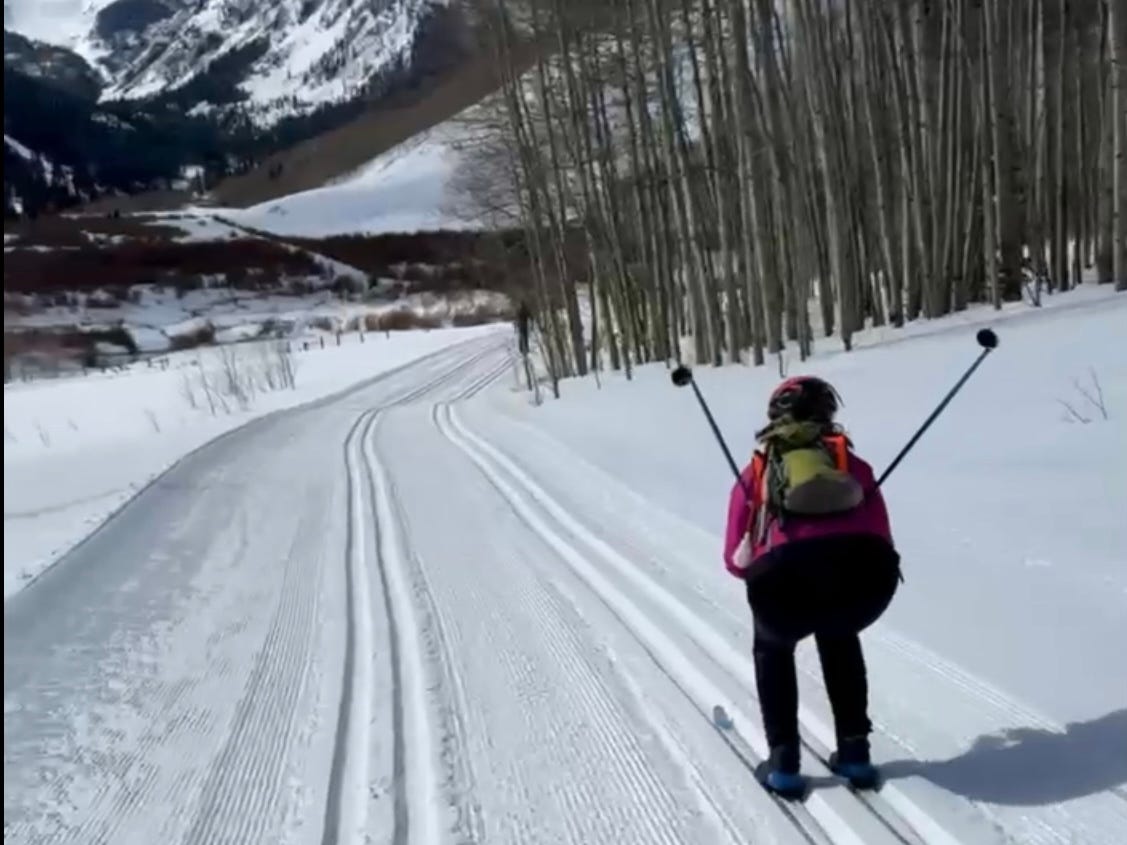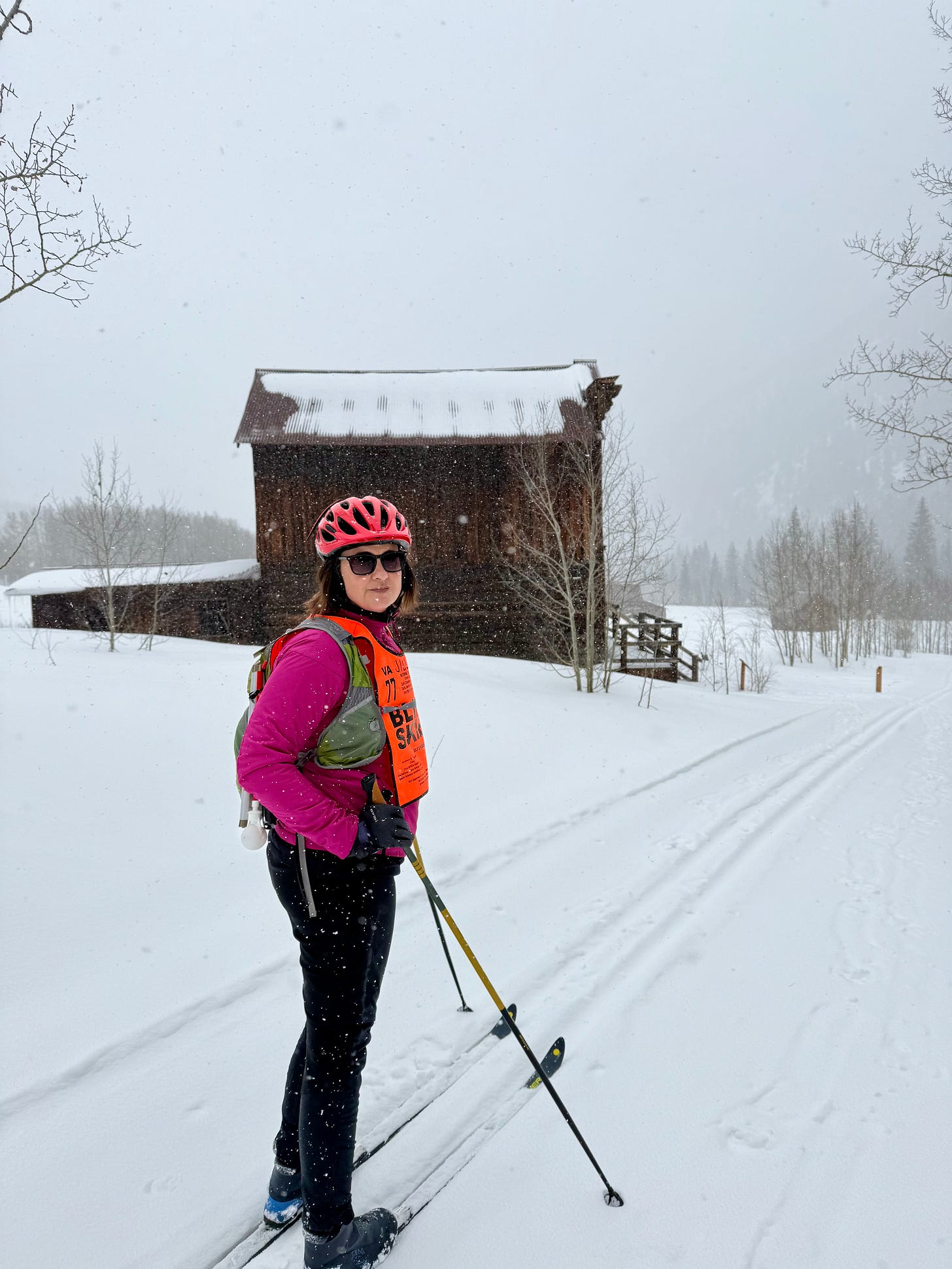Nature Doesn’t Care How Strong You Are (And That’s a Good Thing)
5 things skiing blind taught me about strength, fear, and showing up anyway
Last year, I tore my ACL downhill skiing.
This year, I strapped on a pair of Nordic skis and headed back out into the snow—on purpose.
Was I nervous? Yes.
Was I trying to prove something? Honestly… also yes.
But mostly, I wanted to see if I could reclaim something I’d lost: not just mobility, but trust. In my body. In the trail. In myself.
I was at the National Disabled Veterans Winter Sports Clinic, skiing alongside veterans with amputations, TBIs, seizure disorders—you name it. Every one of us was navigating something. And none of us had anything to prove.
And that’s when it hit me:
Nature doesn’t care how strong you are.
She’s not handing out trophies. She’s not measuring your performance.
She just shows up as she is—and asks you to do the same.
Here’s what else she taught me.
1. Strength Isn’t Speed
We’ve all been fed this idea that strong people push through pain, hustle harder, climb faster.
But I was on Nordic skis, moving slowly, deliberately. Trying not to fall.
And you know what they say in the Marines:
“Slow is smooth, and smooth is fast.”
Turns out, that’s not just a tactical strategy—it’s a spiritual one.
Big takeaway: You can move slowly and still be strong. In fact, sometimes that’s the only way to move forward.
2. Fear Doesn’t Mean Stop
Standing at the trailhead, I felt that familiar thrum of fear—tight chest, sweaty palms, second-guessing everything.
But fear wasn’t telling me to quit.
It was just telling me to pay attention.
Fear is information, not a verdict.
Big takeaway: Fear isn’t a red light. It’s a yellow one. Proceed with awareness.
3. Being Seen Is Stronger Than Being Impressive
Nobody at the Winter Sports Clinic cared if I looked graceful.
We were all gloriously awkward in our own ways.
And honestly? It was kind of beautiful.
No one was trying to outperform. We were trying to connect.
Big takeaway: Community isn’t built through competition—it’s built through compassion (and sometimes collapsing into snowbanks together).
4. Nature Doesn’t Judge
I’m legally blind. The woman beside me had a seizure disorder. The guy ahead of me had one leg.
Nature met us all the same way: with cold air, blue sky, and trails that didn’t care what we’d been through.
Big takeaway: You don’t have to earn your place outside. You already belong.
5. Adaptation Is Its Own Kind of Bravery
I didn’t ski like I used to. I couldn’t. I had to adjust, listen, recalibrate.
But I still showed up.
And every time I fell on my face—and got back up—I was reminded:
Real strength isn’t about never falling. It’s about learning how to fall better.
Big takeaway: Adaptation isn’t weakness. It’s a quiet, steady kind of courage.

Final thought:
If you’re waiting to feel stronger before you go outside, try flipping the script.
Go outside to become stronger—on your own terms.
Because nature doesn’t care how strong you are.
But she might just show you how strong you’ve been all along.
Have you ever had an outdoor moment that reminded you just how capable you really are?
Or maybe one that totally humbled you in the best possible way?
I’d love to hear about it in the comments.
(And if it involves falling in the snow and laughing your ass off, you’re in good company.) #LoveTheWild







During training for a sprint triathlon, I faced my biggest fear--open water swimming. The safety of indoor lap swimming did not prepare me for the darkness of the lake. This practice swim was a defining moment--a second triathlon was coming to replace the shame of last year's event. Memories of being kicked by nearby swimmers...the weeds, low visibility, gasping for air...yes, I finished, but it wasn't me. It was my past. I spent the next year in therapy with EMDR to work through a childhood boating accident. I finished my second sprint triathlon, proud of the work it took and of nature's lesson to keep growing.